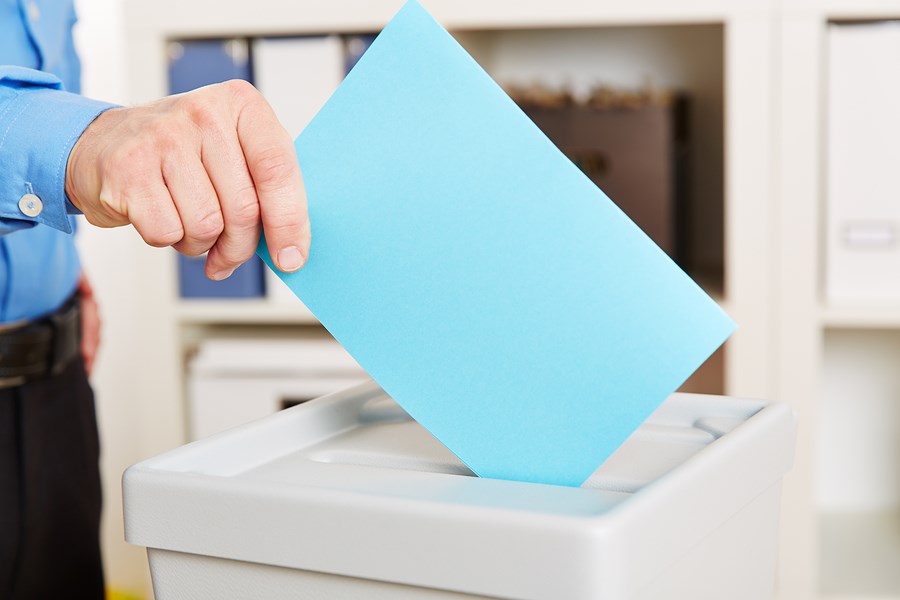Flin Flon’s general municipal election on Oct. 24 saw the lowest voter turnout in the past three general elections.
Out of 4,110 eligible voters in Flin Flon, 1,067 went to the polls last month, a voter turnout of 26 per cent. This is down 27 per cent from 2014, when 35.6 per cent of eligible voters turned out.
The 2010 municipal election saw a voter turnout of 45 per cent. In recent years, only the municipal byelection held in Flin Flon in 2016 saw a lower voter turnout, with 12.4 per cent.
Mayor Cal Huntley, who was acclaimed for the next term, said he does everything he possibly can to encourage people to vote or attend council meetings.
“The vote is the one time where you have a direct say in who is going to be representing you for the next four years,” he said.
“Even with that encouragement, if people are generally okay with the direction mayor and council have been going and there are no ‘burning bush’ issues, you usually get a lower turnout. So in saying that, I would like to interpret the turnout and the result of the election as a sign the community is generally pleased with the last four years and is satisfied with the direction we are going.”
Huntley said the only way to ensure greater turnouts to council meetings or the next election would be through a controversial issue or some significant upset.
“This is not something that we as a group will be working towards, but it may happen in spite of our efforts. Rather, we will be working very hard to engage the community through participation in various initiatives around diversification, recreation and seniors housing.”
While the low voter turnout is interpreted by Huntley as a sign of satisfaction from the community, this may not be the case amongst all of those who did not vote.
The Reminder reached out to Flin Flon residents who were eligible to vote but who did not, for a variety of reasons, and asked them to share those reasons under the condition of anonymity.
Out of the six people who responded, two said they forgot to vote. One said they were out of town during the election and wished there was a way to vote online. This person said they were unaware of the opportunity to vote by mail.
One person was dissatisfied with the candidates’ platforms and has had experience with a previous council that was unsatisfactory to them.
“When I thought about it, I decided that city council has no interest in working on the things I want council to do,” they said.
“I think it does not matter who is on council. It appears that council is much the same regardless of who is on there. I am interested in making a difference in what sort of city we are. I worry about poverty and homelessness. I feel that people have gotten more strident about problems on Main Street and uptown, and the knee jerk reactions have been to blame people. I want council to be more inclusive.”
This person said that they usually do vote, but in this particular election they felt “apathetic about who was running and what they stand for.” They indicated that they regularly vote in elections and would consider voting in future elections if candidates on the ballot championed inclusivity or causes that were important to them.
Another person voiced dissatisfaction with the 12 candidates on the ballot.
“[There were] too many people running representing their own special interests or special interest groups,” one person said.
“Also, the platforms were almost identical with the main message being to promote Flin Flon – seniors’ housing, tourism, new business, transportation hub. Especially with an uncertain future due to the 777 Mine closure pending, nobody seems to have a good plan in place, if at all, for cutting costs or services or preventing skyrocketing taxes if heaven forbid … the worst case scenario happens. Everyone wants to stay positive – it’s nice to be that way, of course – but they have to be realistic too, and prepare for the worst.”
This person said they did not consider spoiling their ballot.
“Maybe people do that as an angry and defiant statement with the way things are going. I actually appreciate the community minded people that were running and hoping to help, and make this a better place, but I didn’t see anything being offered that was any real change going forward, and [there were] too many similarities, so I stayed home instead.”
One person cited lack of accessibility at their polling station as their main reason for not voting.
“Being a disabled citizen, having to go to the community hall to vote with all the stairs, et cetera, is just not feasible,” they said, adding they would like to have an option to vote online. This voter was also not aware of the option to vote by mail.
“Another issue I had was not much was available to get to know the candidates more to be better informed to vote. When people are shut-ins, they need accessible [information]. To me, it’s just another barrier for disabled people to deal with.”
Flin Flon isn’t the only community that saw lower than normal voter turnout in the most recent municipal election, and the phenomenon isn’t limited to small, remote or northern communities. Winnipeg saw a voter turnout of 42 per cent, the lowest turnout since the 2006 municipal election, while Brandon saw a voter turnout of 16.86 per cent, a drop of more than 50 per cent since the 2014 municipal election.




